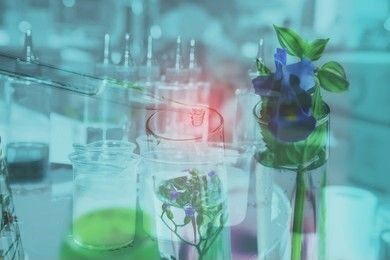Systematic Pharmacological Analysis of Herbal Medicines
Inquiry
Systems pharmacology studies drug-organism interactions, their patterns, and mechanisms of action at a systems level. Systems pharmacology is dedicated to elucidating, validating, and applying theoretical computational and experimental methods and techniques to discover small molecules, identify targets, and study disease pathogenesis and therapeutic mechanisms. This will provide new strategies and tools to precisely regulate complex intracellular networks, alter disease pathophysiology, improve drug efficacy, and reduce adverse effects. Lifeasible aims to develop pharmacological models of herbal systems that integrate data at several spatial and temporal scales for complex herbal systems and to model the interactions between multiple elements (e.g., drug molecules, targets, cells, tissues, organs) within the model to elucidate and predict the mechanisms of drug efficacy and toxicity.
We have built a computational ADME/T platform that uses computer technology to build models to predict the unknown ADM properties of drugs based on existing in vitro ADME data, thus aiding experimental purposes.
We use network targeting and new target prediction schemes to construct drug action or related disease networks from different perspectives, build analytical and predictive models, study drug action mechanisms and discover new targets.
We offer you a multiscale simulation service in herbal systemic pharmacology, considering the characteristics of herbal medicine. We use different simulation and analysis methods for different spatial and temporal scales.
We use network pharmacology to build a drug-target-disease network from the systemic nature of drug-disease interactions and to virtually screen herbs in vitro for potential active substances, targets, and pathways so that you can subsequently study the actual situation of the drug and disease in a targeted manner.
To improve the efficiency of the screening process, our current strategy is to use the ideas and methods of network pharmacology to first apply computer-based virtual screening to select promising drug candidates for further high-throughput and high-content screening.
We attempt to integrate traditional concepts and help you explore the pharmacological effects of herbs based on their energetic pharmacology, i.e., based on their hot, cold, warm, and excellent energetic properties.
The complexity of herbal systems makes it extremely difficult to study them in-depth, and herbal systems pharmacology offers new ideas and perspectives for studying complex herbal systems. Lifeasible's systemic pharmacology techniques can help you to study the active substances and combinations of herbal medicines, identify the targets of active ingredients, theories, and methods for the relationship between active substances and disease, and thus establish a system-based system of pharmacodynamic and mechanistic analysis of herbal medicines. Please feel free to contact us for more information.
For research or industrial raw materials, not for personal medical use!
Related Services






